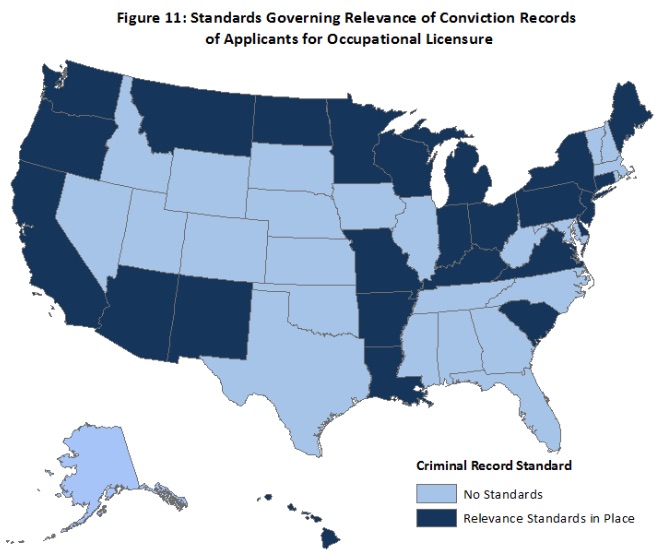An op-ed in the Washington Examiner by Emily Mooney and Jonathan Haggerty of R Street Institute makes the case for removing automatic disqualifications for occupational licensing for having a criminal conviction.
Policymakers worry about recidivism and want people, on release, to find work. Having a job greatly reduces the likelihood of committing more crime.
They write:
Nearly one in three jobs now requires a government-granted license, and both states and the federal government have enacted more than 20,000 licensing restrictions on those with a criminal record. Many of these restrictions do not require any connection between a person’s offense and the duties of the licensed job.
The nagging employment problem formerly incarcerated people face, combined with the wealth of evidence associating quality employment with crime-free behavior, should compel lawmakers to create a clear path to licensure for individuals before they ever leave prison.
Last year, a lawyer and reform advocate in California lamented “a lot of (prison) programs actually train people how to do these jobs … without telling them they’ll be banned from getting the license.” …
Securing employment soon after release reduces recidivism rates and allows the formerly incarcerated individual to return to a stable life. Unfortunately, Draconian occupational licensing laws hamstring hard-working people like Spillane and Haveman in their efforts to do so.
As we’ve discussed here, North Carolina is one of the states that make it very difficult for a recently released — and presumed rehabilitated — worker to find a job in his field. North Carolina has 641 different disqualifications in state occupational licensing laws for having a criminal record.
Disqualifications in state occupational licensing laws barring a license to someone with a criminal record (SE states)
 Data source: National Employment Law Project
Data source: National Employment Law Project
Some criminal convictions are relevant as to whether a person should be able to get a license in a certain profession. Many others aren’t. But North Carolina lacks a way to differentiate among criminal convictions in licensing disqualifications:

As argued above, this works at cross purposes with helping the newly rehabilitated make an honest living. It’s one of many reasons why North Carolina needs a thorough modernization of its outdated occupational licensing system.


